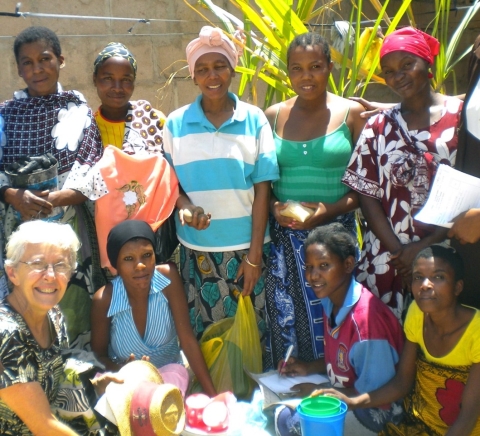
“Do we love enough, do we work enough, do we pray enough, do we suffer enough?” Mother Mary Joseph, founder of the Maryknoll Sisters, asked the Sisters that question in 1947. These were important questions at the time, for she added, “Maryknoll’s future depends on our answer.”
We sometimes ask similar questions: do I love enough, do I do enough? But, do we suffer enough?! What kind of question is that?! Who asks that? Who wants to suffer!? But, we do.
We Maryknoll Sisters in Tanzania were among the many who cared for women, men, and even children suffering and dying with HIV AIDS at the time when drugs for treatment were not available in that country. A neighbor, after she lost her husband and a child to the disease, told me that before those deaths, God had loved them. Suffering such loss meant for her that God had abandoned her and/or was punishing her. At the same time, others in the community were caring for children whose parents had died from the disease. Women in the parish carried the sick on their backs to a hospital where some kind of relief might be available. How do we respond to those who suffer, to our own suffering?
When Jesus asked his disciples who they thought he was, what was he expecting? Was he curious or was this some kind of test? In the end we learn that he wanted them to know that he would suffer.
Isaiah gives one picture of what suffering looks like and how we might respond. He speaks of his ears being opened; that would be about listening, paying close attention to what others are saying. He turns his face to his adversary. “My face, I did not shield;” I will take whatever strikes me, shame, spitting. This is about nonviolence, no revenge, no striking back – about compassion and peacebuilding.
James, in our second reading, does not mention suffering, but he questions if faith is enough. “Faith of itself, if it does not have works, is dead.” Is it enough to pray for families whose loved ones have been killed by guns? Not by itself, according to James and to Mother Mary Joseph. Serious attention to the causes of suffering and the courage to act are required.
Sometimes we act. Sometimes we pray. Sometimes, yes, it is enough; sometimes, maybe not. Sometimes we feel powerless and then do nothing. What can I do, or what more can I do, to make a difference? Let us open our ears, face with courage those who strike us, and speak on behalf of those who suffer. “God is our help.” Our faith, knowing that the grain of wheat must die, makes it possible. For it is in only through dying that new life germinates, blooms and bears fruit, the possibility of beauty and the miracle of food for all.
Photo of Maryknoll Sister Connie Krautkremer with women from her AIDS ministry in Tanzania, courtesy of the author.
